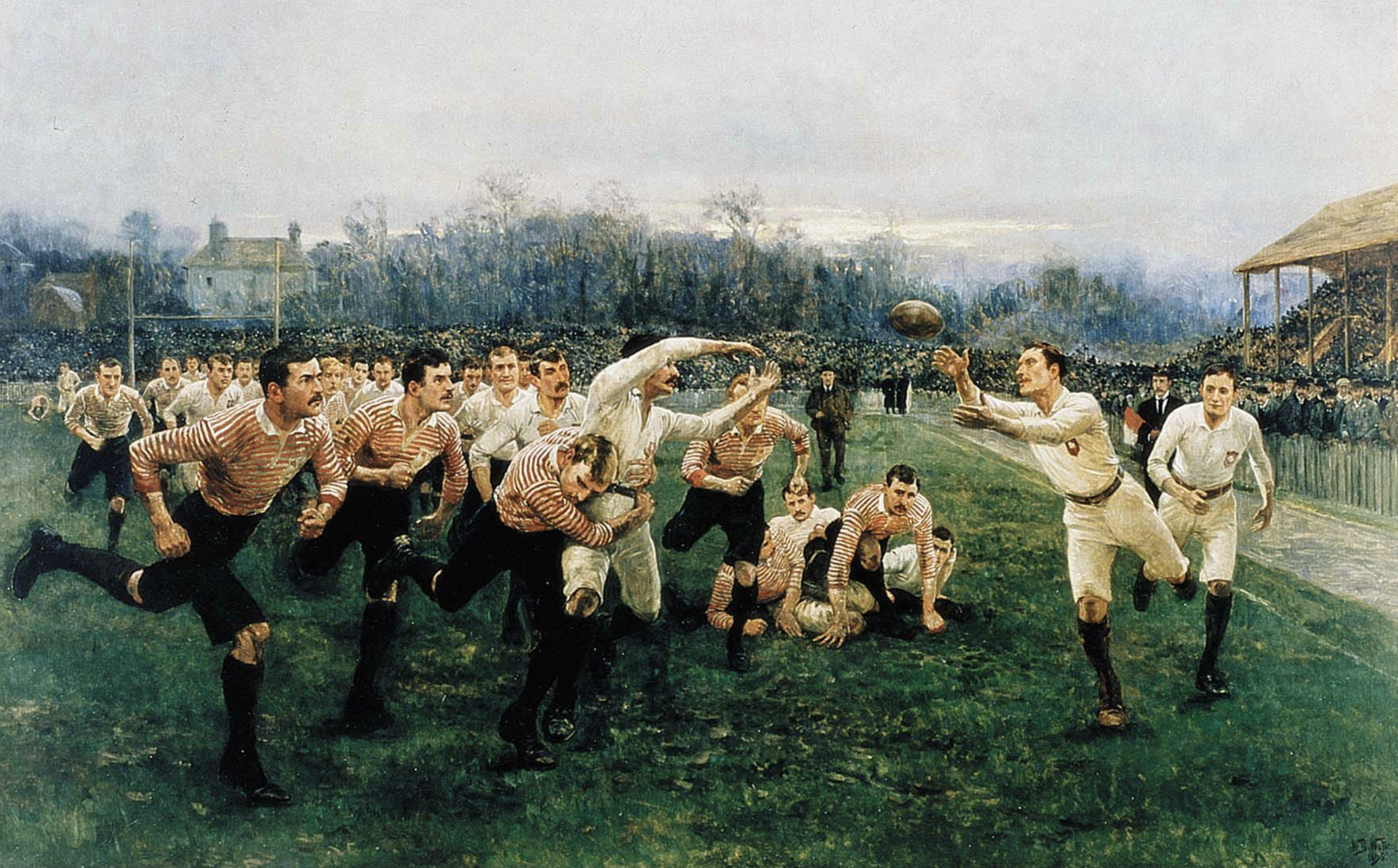My Rugby Tour of New Zealand: What To Do When You’re On the Horns of a Dilemma
William Wollen, The Battle of the Roses
I don’t really have the body for sport. I’m not agile, fast or flexible. My vision is weak, my reactions are poor and I have only moderate coordination. I’m not tall enough for basketball, tough enough for boxing, or tolerant enough for golf.
So I was fortunate to find rugby. Here was a sport that seemed happy to accommodate my limited abilities. Playing as a Flanker I could push and shove, grip and grapple, ruck and maul. I could lean in and bind on; leap up and scrum down. Above all I could tackle. When the ball left the breakdown I would aim like an Exocet missile at the opposition Centre, timing my flight to hit him just as he received the pass. Crash! It was in its own way rather poetic.
There was of course a good deal of sprinting and passing to be done as well, which in my case translated into trundling and fumbling. But I managed to get by. And I’d say rugby was the only sport at which I ever really excelled.
One year the school decided that it would organise a tour of New Zealand, the home of the finest rugby playing institutions in the world. It was a mouth-watering prospect. And so we embarked on an extensive round of fundraising. There were raffles, tombolas and quizzes. There were sponsored runs, jumble sales and chicken-in-a-basket suppers.
It all got too much to tell the truth: too much rallying and tub-thumping; too much chivvying and chasing. One day a number of the disgruntled players called a team meeting and told the authorities that we’d had enough.
I was naturally a conformist child, generally happy to toe the line. I didn’t want to disappoint the sports teachers who had given me so much. But, equally, something about this obsessive, unremitting focus on a singular goal rubbed me up the wrong way. I was also conscious that Dad was in and out of work, and my family was short of money. I found myself on the horns of a dilemma.
I lost quite a lot of sleep over it. Waking up in the middle of the night, tossing and turning. Weighing up the pros and cons, thinking through the fors and againsts. Should I stay or should I go?
Over the weeks that followed the crisis meeting, most of my fellow refuseniks were talked round. But I surprised myself and held the line. And the tour went ahead without me.
When they returned I realised that I had missed a phenomenal experience. The team had seen the world and played against the best. But I had profited in my own way from the New Zealand Rugby Tour. I had learned that I didn’t have to run with the pack; that I could make my own decisions and could be resolute. I had learned that I could change. And I was happy with this outcome.
'Our dilemma is that we hate change and love it at the same time; what we really want is for things to remain the same but get better.'
Sydney J. Harris, Journalist
I read in The Times recently (18 May 2020) about an experiment conducted by Steven Levitt, professor of economics at the University of Chicago. 22,000 people who found themselves in a life quandary submitted themselves to a virtual coin toss to determine which path they should take. Questions ranged from the major to the minor: Should I quit my job? Should I propose? Should I get a tattoo? Should I try online dating? Whatever the dilemma, Levitt’s virtual coin toss gave the respondent a simple ‘yes’ or ‘no’ answer.
According to the research, published in the Review of Economic Studies, nearly two thirds of participants followed the recommendation of the coin toss.
Two themes emerged.
Firstly, people tend to resist change: only about 50 % of those told to make a change did so, while 75 % of those told to maintain the status quo followed the coin’s recommendation.
Secondly, people that make a change tend to end up more content: after six months those who had opted to change course saw a significant increase in their personal happiness.
Levitt concluded:
'The data from my experiment suggests we would all be better off if we did more quitting… A good rule of thumb in decision-making is, whenever you cannot decide what you should do, choose the action that represents a change, rather than continuing the status quo.'
A compelling provocation and one that rings true.
When I left school and went to College, I chose football as my sport. In time I became proud captain of the Pembroke 3rd XI and subsequently manager of the legendary South Indies. Over the years the game gave me a great deal of pleasure.
But it’s fair to say I was never very good at football. I was a slow, ponderous Central Defender, partial to muscular shoulder charges and late tackles. I always played football like a rugby player.
'Darling, you got to let me know,
Should I stay or should I go?
If you say that you are mine
I'll be here 'til the end of time.
So you got to let me know,
Should I stay or should I go?
Should I stay or should I go now?
Should I stay or should I go now?
If I go, there will be trouble.
And if I stay it will be double.’
The Clash, ‘Should I Stay or Should I Go?’ (J Strummer / M Jones)
No. 288


